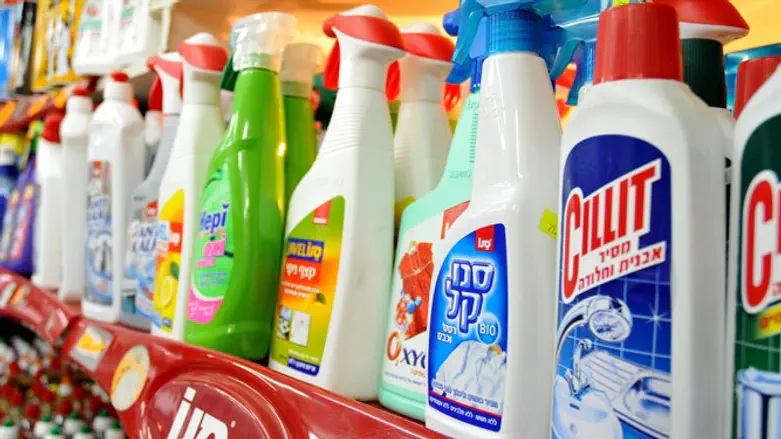
The Knesset’s National Projects Committee met on Thursday morning to discuss the government’s proposed reforms to Israel’s kashrut system recently presented by Religious Affairs Minister Matan Kahana (Yamina), and to incorporate them into the Arrangements Law, which will be presented for approval to the Knesset in this winter’s session.
Committee head MK Yulia Malinovsky (Yisrael Beytenu) came prepared to the meeting, displaying before her fellow committee members a selection of items with kosher certification, including bleach, dishwashing soap, toothpicks, and other inedible items, some of which were purchased in non-kosher supermarkets (i.e. stores that sell non-kosher products such as pork).
“Even toilet-bowl disinfectant has a kosher stamp!” Malinovsky said. “This issue affects all of us, all Israeli citizens, not just religious people,” she added, as she described the "necessity" of kashrut reform without explaining exactly how competition in the kashrut industry would lead to non-edible products no longer being supervised, given that it is not the Rabbinate that demands such supervision.
“We have no way of knowing how much time kashrut supervisors devote to each business they oversee,” she added, “or which businesses they are responsible for. This leads to doubling in many cases, with businesses overseen by several supervisors, and it also impacts the quality of the supervision,” she stated. “We all need kashrut supervision and we pay a lot of money for it, whether we are religious or not. It affects us everywhere. And if a certain hotel wants to get kashrut supervision, and the supervisor demands a room for himself and his family for the weekend in return, then we have to pay for that too,” she alleged.
Knesset members from the haredi political parties (Shas and United Torah Judaism) boycotted the committee meeting, but Religious Zionism MK Avi Maoz did attend, and protested the proposed reforms.
The issue of non-edible products receiving a kosher stamp is hardly a new one, and has been addressed in various forums many times. With regard to the Israeli market, the "demand" for a kosher stamp comes not from the Rabbinate, which does not require any non-edible product to be supervised, but rather from the general public.
"This is what many members of the public want," Rabbi Avraham Yosef, the head of one "Badatz" (a more stringent) kashrut supervision agency, told Ynet. "The factories are responsive to the demand and ask us to provide them with kosher supervision, even though products like bleach, for instance, don't need a kosher stamp, even for Pesach."
